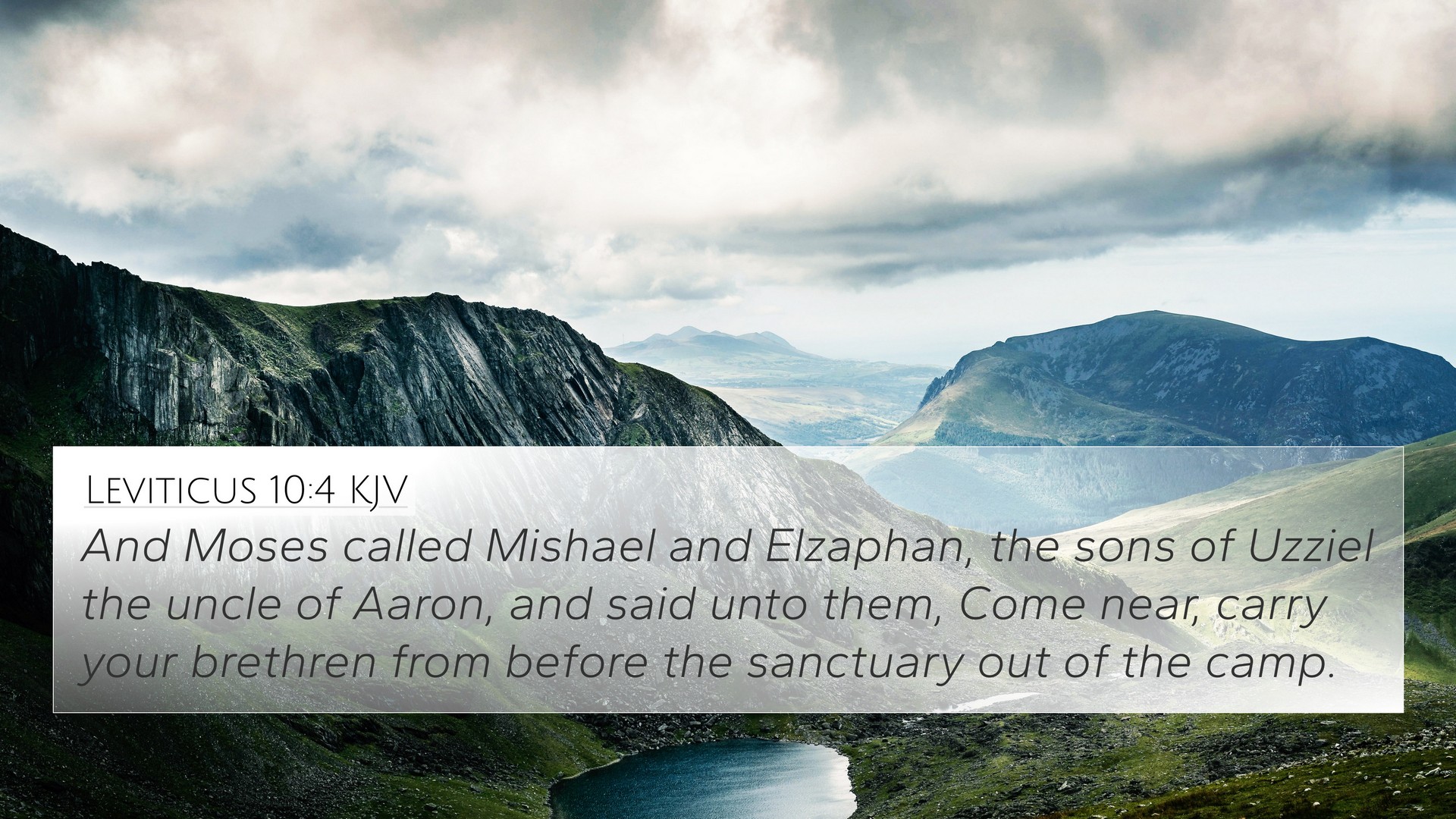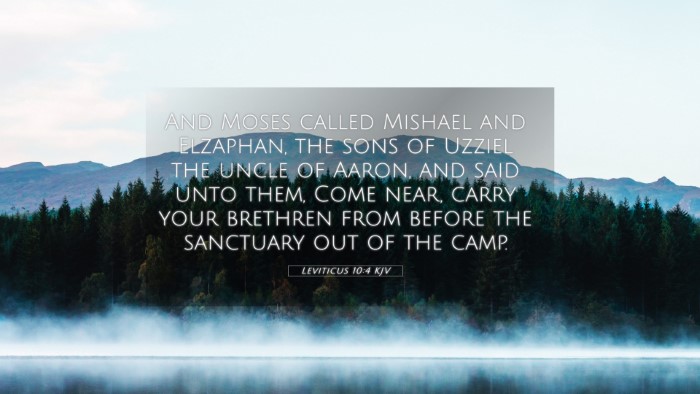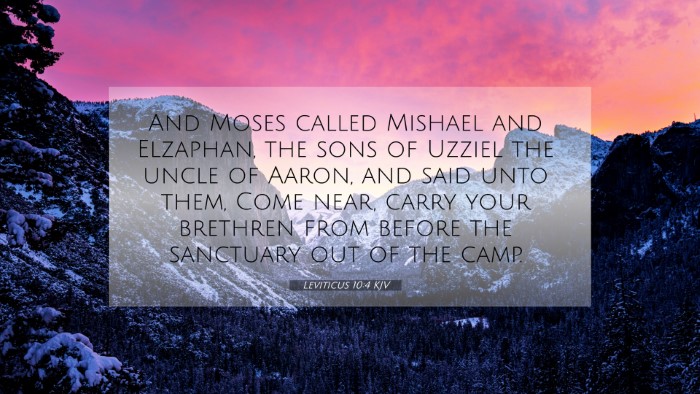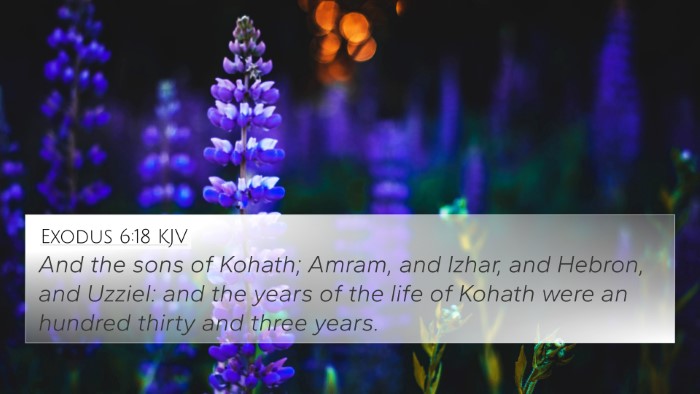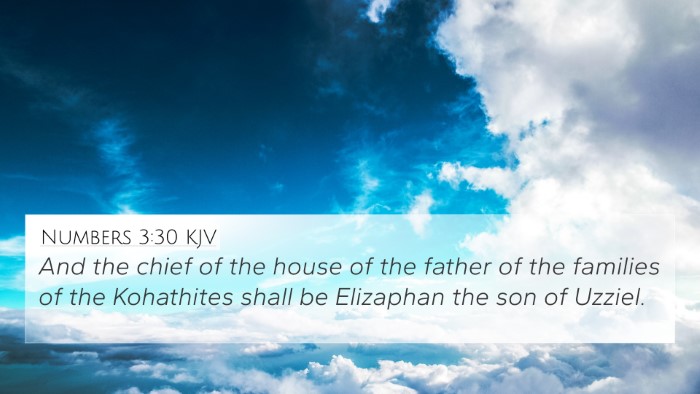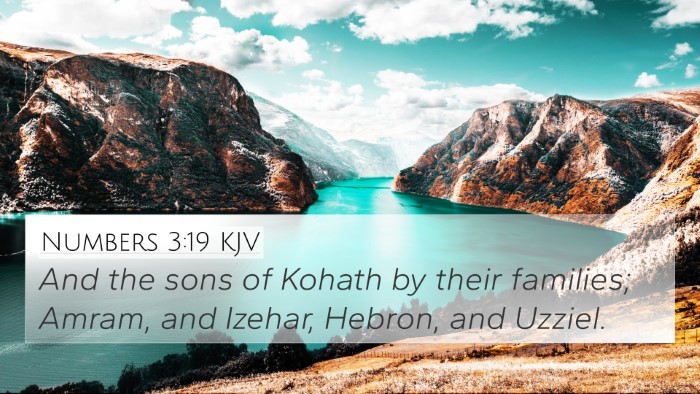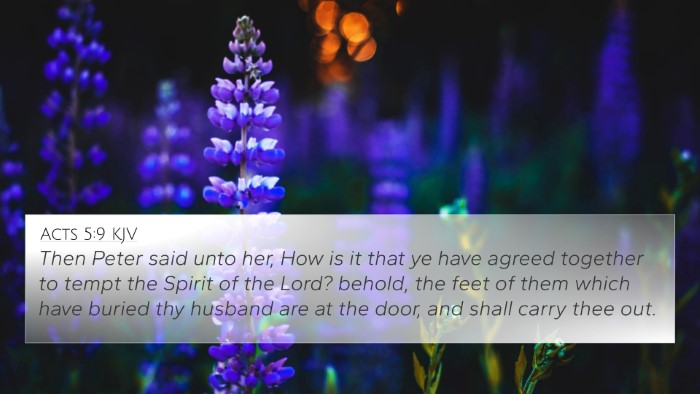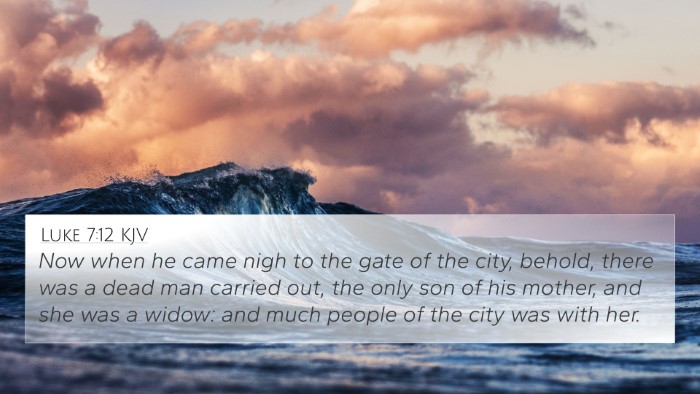Understanding Leviticus 10:4
Bible Verse: Leviticus 10:4 - "And Moses called Mishael and Elzaphan, the sons of Uzziel the uncle of Aaron, and said unto them, Come near, carry your brethren from before the sanctuary out of the camp."
Verse Meaning Overview
This verse occurs in a pivotal moment following the tragic event of Nadab and Abihu, the sons of Aaron, who offered unauthorized fire before the Lord. In this solemn context, Moses calls upon Mishael and Elzaphan to carry the bodies of their fallen relatives out of the camp, emphasizing both the gravity and sanctity of priestly duties and the consequences of disobedience to God's commands.
Commentary Insights
Matthew Henry's Commentary
Matthew Henry emphasizes the importance of this incident, reflecting on the serious nature of God's holiness and the necessity for respect in worship. He notes that Moses’ directive to the sons of Uzziel symbolizes the process of purging sin from among the people, indicating how serious transgressions must be dealt with in the community.
Albert Barnes' Notes
Albert Barnes sheds light on the cultural implications of this event, observing how the act of carrying the dead bodies was not just an act of sorrow but also a demonstration of the need for purification within the camp. He positions this event within the larger narrative of Israel's journey and the overarching theme of holiness that God requires from His people.
Adam Clarke's Commentary
Adam Clarke brings insight into the symbolic meanings behind the names and actions in this verse, discussing the historical context of priestly roles and how this incident served as a stern warning to the Israelites against straying from divine directives. He notes that the invocation of the deceased in this manner signifies their separation from God due to improper worship practices.
Bible Verse Cross-References
- Exodus 28:1: God establishes the priesthood with clear roles and responsibilities.
- Leviticus 16:1-2: Instructions for handling the holiness of God in the tabernacle.
- Numbers 3:4: Notes the deaths of Nadab and Abihu and their consequence in the priestly line.
- Deuteronomy 21:1-9: Discusses handling situations of death and impurity in the Israelite community.
- Hebrews 12:29: Describes God as a consuming fire, underscoring the need for respect in worship.
- 2 Samuel 6:6-7: The death of Uzzah for touching the Ark illustrates the seriousness of divine commands.
- 1 Peter 2:9: Believers are described as a chosen people, a royal priesthood, emphasizing the ongoing need for holiness.
Thematic Bible Verse Connections
The themes present in Leviticus 10:4 connect significantly to various scriptural principles:
- Holiness of God: This verse highlights the sanctity of God's presence and the responsibilities of His priests.
- Consequences of Sin: The death of Nadab and Abihu serves as a warning of the severe repercussions of disobedience to God's commands.
- Community Purity: The act of removing the deceased from the camp signifies the need for maintaining communal holiness.
- Role of Priests: This emphasizes the unique and sacred role that priests hold in mediating between God and the people.
Tools for Biblical Cross-Referencing
Understanding cross-references is important for deeper Biblical research. Here are some tools that can be utilized:
- Bible concordance: A tool to help locate verses by keywords.
- Bible cross-reference guide: Offers direct passages that relate to your study verse.
- Cross-reference Bible study: An approach that gathers various verses relating to a central theme.
- Inter-Biblical dialogue: Discusses connections between verses across both Testaments.
User Intent Keywords and Questions
For those searching for related verses or deeper understanding, consider these keywords:
- What verses are related to Leviticus 10:4?
- Find cross-references for Leviticus 10:4.
- How do Leviticus 10:4 connect to other scriptures?
- Similarities between Leviticus 10:4 and other Bible verses.
- Bible verses that support Leviticus 10:4.
Conclusion
Leviticus 10:4 serves as an essential reminder of the seriousness with which God must be approached. This study not only sheds light on the historical context of the verse but also connects it to broader themes of holiness and the consequences of disobedience. By cross-referencing various biblical texts, one can gain a deeper understanding of God's expectations for His people.
